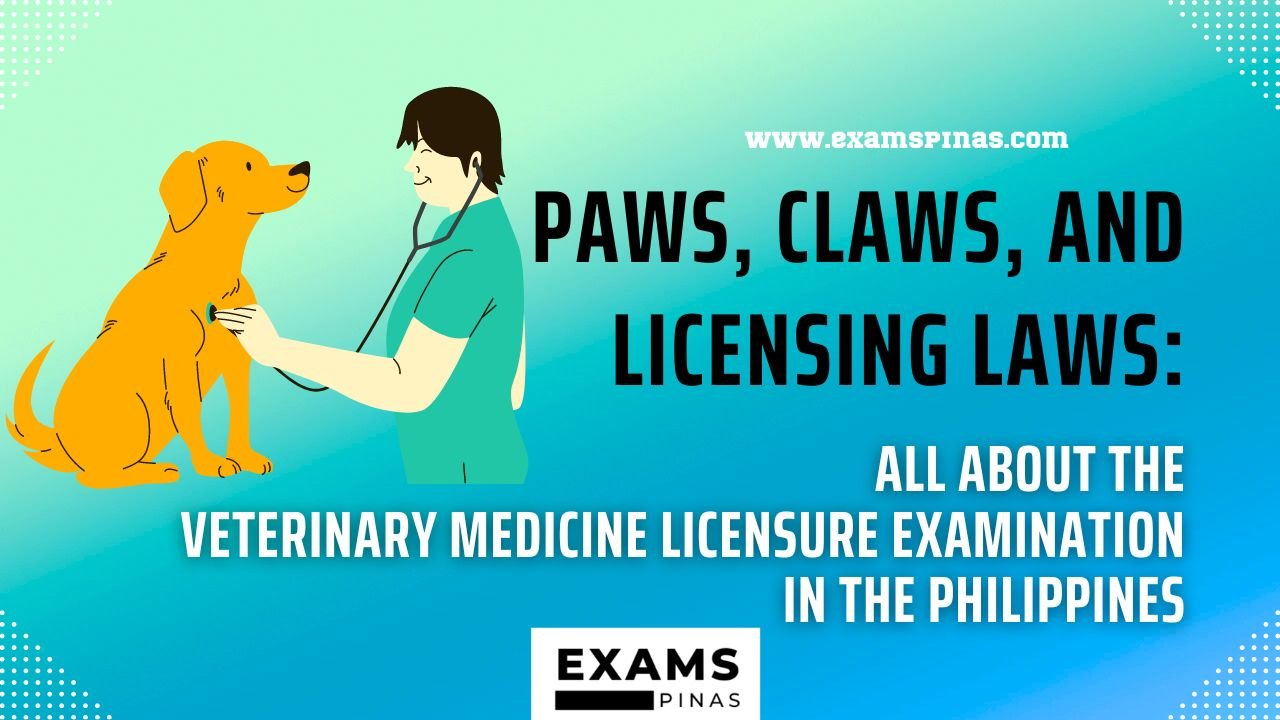The field of veterinary medicine is a noble and compassionate profession that revolves around the care and well-being of animals. Aspiring veterinarians embark on a journey filled with dedication and a genuine passion for animals. One significant milestone in this journey is the Veterinary Medicine Licensure Examination, a rigorous test that determines the eligibility of aspiring vets to practice as licensed professionals in the Philippines.
The Path to Becoming a Veterinarian
1. A Calling for Animal Lovers
Becoming a veterinarian is a calling for those who love animals and have a deep desire to protect their health and welfare. Veterinarians play a vital role in promoting responsible pet ownership, preventing animal diseases, and providing medical care to both domestic and wild animals.
2. Education and Training
The journey to becoming a veterinarian begins with a strong educational foundation. Aspiring vets pursue a Doctor of Veterinary Medicine (DVM) degree from accredited veterinary schools. This comprehensive program covers various subjects, including veterinary anatomy, physiology, pathology, pharmacology, microbiology, public health, ethics, surgery, animal welfare, jurisprudence, zootechnics, animal behavior, and environmental health.
Veterinarian Licensure Examination Coverage
The Veterinary Medicine Licensure Examination evaluates aspiring vets on a wide range of topics essential for their future practice. The coverage includes:
1. Veterinary Anatomy
Veterinary anatomy focuses on the study of the structure and organization of animals’ bodies. Aspiring veterinarians must have a deep understanding of animal anatomy to diagnose medical conditions accurately and provide effective treatment.
2. Veterinary Physiology
Veterinary physiology explores the functions and processes within animals’ bodies. It involves understanding the normal biological processes and how they may be affected by various factors or diseases.
3. Veterinary Pathology
Veterinary pathology deals with the study of animal diseases. Aspiring vets must learn to identify, diagnose, and treat different diseases that affect animals.
4. Veterinary Pharmacology
Veterinary pharmacology involves the study of medications and drugs used to treat animals. Aspiring vets must have knowledge of different drugs, their uses, dosages, and potential side effects.
5. Veterinary Microbiology and Veterinary Public Health
Veterinary microbiology focuses on the study of microorganisms that affect animals, while veterinary public health deals with the health and safety of both animals and humans in relation to public health concerns.
6. Veterinary Medicine (including Ethics, Surgery, Animal Welfare, and Jurisprudence)
Veterinary medicine covers various aspects of medical care for animals, including disease diagnosis, treatment, and preventive measures. It also includes ethics, surgical procedures, animal welfare, and legal principles related to veterinary practice.
7. Zootechnics (including Animal Behavior and Environmental Health)
Zootechnics involves the management and breeding of animals for specific purposes, including livestock production. Aspiring veterinarians must understand animal behavior and environmental health to ensure the well-being of animals under their care.
Preparing for the Licensure Examination
The Veterinary Medicine Licensure Examination tests aspiring vets on a wide range of topics, including animal diseases, pharmacology, surgery, public health, and veterinary ethics. Preparing for this exam requires dedication, extensive study, and hands-on training.
The Examination Process
The licensure examination is typically administered by the Professional Regulation Commission (PRC) in the Philippines. It may consist of both a written and practical component, allowing candidates to demonstrate their theoretical knowledge and practical skills.
The written portion often includes multiple-choice questions and essay-type questions. Candidates must showcase their understanding of veterinary concepts, critical thinking abilities, and problem-solving skills. The practical component involves hands-on tasks that simulate real-life scenarios, evaluating candidates’ ability to handle clinical situations effectively.
The Veterinary Medicine Licensure Examination is a challenging but essential step in the journey of aspiring veterinarians. It ensures that only competent and qualified individuals enter the field of veterinary medicine, ready to contribute to the well-being of animals and the community.
Aspiring veterinarians should approach the licensure examination with determination, dedication, and a passion for animal health. Through rigorous preparation and a commitment to excellence, they can overcome the challenges and embrace a rewarding career that revolves around caring for our beloved furry companions.

